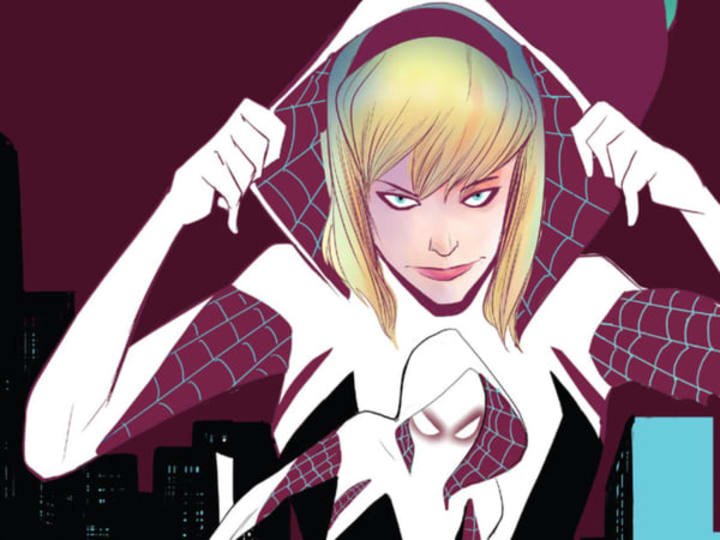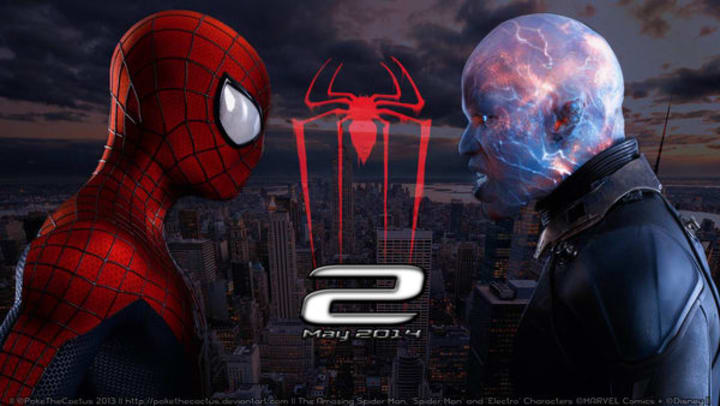
We're in the final countdown for the release of #CaptainAmericaCivilWar — and the first reactions are tremendously positive! But it's worth taking a look back and realizing that this was the Marvel movie that almost didn't get made. For all we heard about director problems with Ant-Man, no Marvel film struggled more than Captain America: Civil War...
1. Even Kevin Feige Wasn't Originally Convinced

Captain America: The Winter Soldier was viewed as one of #Marvel's greatest successes, so it was no surprise that Joe and Anthony Russo were brought on board to helm the third Captain America film. But the Russo brothers wanted to do something different. In the words of Joe Russo:
"The only thing that seemed interesting to us was to deconstruct the Marvel Universe — because where else can we go at this point?"

The brothers weren't really interested in doing "more of the same"; they felt that it was time to offer something different. The problem was, although Marvel's visionary #KevinFeige felt the Russo brothers might be on to something, he wasn't ready to sign off on it.
Everything changed at the 2013 San Diego Comic Con, when DC announced their plan to work on Batman v Superman: Dawn of Justice. With strong competition joining the game, Feige decided that Marvel had to do something seriously challenging. Screenwriters Christopher Markus and Stephen McFeely were soon working on their first drafts for Captain America: Civil War, and the Russo brothers got the film they wanted.
2. The Robert Downey Jr. Problem

In terms of pay, nobody is more expensive for Marvel than #RobertDowneyJr. — he was paid more than $40 million for Avengers: Age of Ultron! Incredibly, Downey Jr.'s negotiations for Captain America: Civil War seem to have been even more successful. He was originally going to have a much smaller role in the film, but he wanted more. Marvel's reclusive — and notoriously skinflint — CEO Ike Perlmutter was angered at that, and ordered for #IronMan to be cut from the script of Captain America: Civil War entirely.
Kevin Feige wasn't happy with Perlmutter's instructions. He carried on with negotiations for Robert Downey Jr., and meanwhile continued to put together his long-term plans, which needed Captain America: Civil War to be huge. Perlmutter and the Marvel Creative Committee, which included Marvel Entertainment President Alan Fine, major comic writers such as Brian Bendis, and Marvel Entertainment CCO Joe Quesada, tried to "scale down" the film in order to save money.

For Kevin Feige, who'd already been clashing a lot with Perlmutter, this was the final straw. Feige threatened to quit; Disney intervened, actually forcing a corporate restructure, with Marvel Studios separated from the traditional Marvel reporting lines. The Marvel Creative Committee was disbanded. Feige got his way, and we're getting the movie he wanted us to get.
Oh, and Robert Downey Jr.? His role wound up being a pivotal one, aligned to the original comic book storyline. Reports are that he's earning $40 million plus backend participation, with an additional payout if Captain America: Civil War outperforms Captain America: The Winter Soldier.
3. The Spider-Man Crisis

The first reaction to Captain America: Civil War centered around the fact that #SpiderMan is a highlight. Again, though, this is something that almost didn't happen! When Sony was hacked in December 2014, we learned a lot about the back-office deals going on between Marvel Studios and Sony Entertainment, who owned the rights to the Spider-Man film franchise. By October 2014, Marvel had offered a deal where Marvel would produce a new Spider-Man trilogy, and use the character in other films such as Captain America 3, but Sony would retain "creative control, marketing and distribution."
Here's the thing: the plans didn't go through. Sony Entertainment turned the offer down, planning to go their own way with films such as Sinister Six and a female Spider-character film (the company was apparently fascinated by the comic book success of #SpiderGwen.) The deal was dead in the water — and then Sony Entertainment got hacked.

The behind-the-scenes chaos at the studio became public knowledge, along with more than a few embarrassing emails. Here are the kind of things being said behind closed doors at Sony Entertainment, and they make for some wince-worthy reading:
"Are you aware that Men In Black 3 may gross $600M at the box office, and yet will lose money for [Sony]? Shouldn’t we question that strategy? Why are some studios making Hunger Games, Harry Potter, Twilight – and we are considering movies like Moneyball, Steve Jobs story, Captain Phillips Story, Evel Knievel story, etc. Are you aware that SPE only has 1 franchise – Spiderman. Yet, it took 5 years to generate a sequel? Spidey 3 was released in summer 2007, #4 in 2012. Don’t harry potters come out over 2-3 years?Are you aware that [Sony] has only 1 franchise – Spidey? Yet we waited 5 years after Spidey 3 (2007) to release #4? Have you read the SEC annual report? Disney will make $300M on Spidey merchandise this year alone. We won’t!"
The Amazing Spider-Man 2 had made it clear to viewers and critics alike that Sony Entertainment were trying to rush into creating their own Cinematic Universe. It simply hadn't worked, and, behind the scenes, even the studio knew it.

Sony Entertainment clearly didn't have a clue about how to manage a franchise like Spider-Man, and their parent company, Sony, exerted pressure for the studio to accept Marvel's deal. Sony Entertainment held a dedicated Spider-Man summit in February 2015, and the decision was made. Thankfully, Marvel were evidently willing to go back to the negotiation table, although we don't know if the terms of the deal were renegotiated.
So there we have it: in a strange way, we have hackers to thank for Spider-Man's debut in the Marvel Cinematic Universe!
Captain America: Civil War certainly ruffled some feathers, but first reactions are positive. Meanwhile, the film manages to take some serious steps forward for Kevin Feige's long-term vision, and introduces a whole new version of Spider-Man. I think all fans will be glad that the pieces of this particular jigsaw came together...
About the Creator
Tom Bacon
A prolific writer and film fan, Tom has a deep love of the superhero genre.






Comments
There are no comments for this story
Be the first to respond and start the conversation.